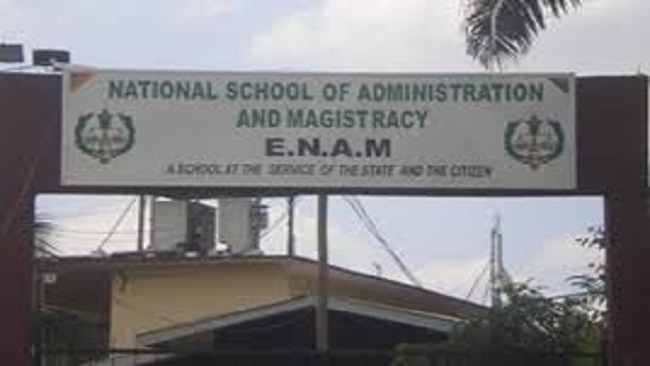Southern Cameroons Crisis: Yaounde announces massive recruitment of English speaking lecturers at ENAM
The Biya regime has recently announced a recruitment of English speaking lecturers to train Southern Cameroonians at ENAM. The Francophone government in Yaounde say the positions are reserved for Cameroonians or foreigners residing in Cameroon, and concern magistrates, lawyers, registrars, bailiffs, notaries, accountants, company lawyers, university category A officials wishing to integrate or be reinstated in the number of qualifying instructors at ENAM should make themselves available.
The lecturers will be required to provide courses in specialty subjects under the non-harmonized law, such as: Civil Court Pratice; Law of Evidence; Probate proceedings and specialty materials under harmonized law including materials to support professional techniques. Interested candidates have been advised to send in their applications no later than the 10th of November 2017. A candidate may only apply for three subjects.
The opening of a Common Law section within the Division of Judges and Registries of ENAM is one of the so-called solutions from President Paul Biya to the demands made by Southern Cameroons lawyers. Like the integration of a section of the Common Law Section into the Supreme Court, the Biya government claims the enumeration of Southern Cameroons Magistrates is to increase the number of English-speaking Magistrates in the High Jurisdiction.
Acting under pressure in March 2017, the 85 year old French Cameroun dictator ordered the creation of a Faculty of Legal and Political Sciences at the University of Buéa. The Minister of Higher Education was instructed to prepare the texts relating to the creation of the Departments of English Law in the Universities of Douala, Maroua, Ngaoundéré and Dschang, similar to the one that already exists at the University of Yaoundé II at Soa and the curriculum of public law teaching in the Universities of Buéa and Bamenda, to take into account that the Common Law ignores the distinction between private law and public law.
By Fru James, CIR





